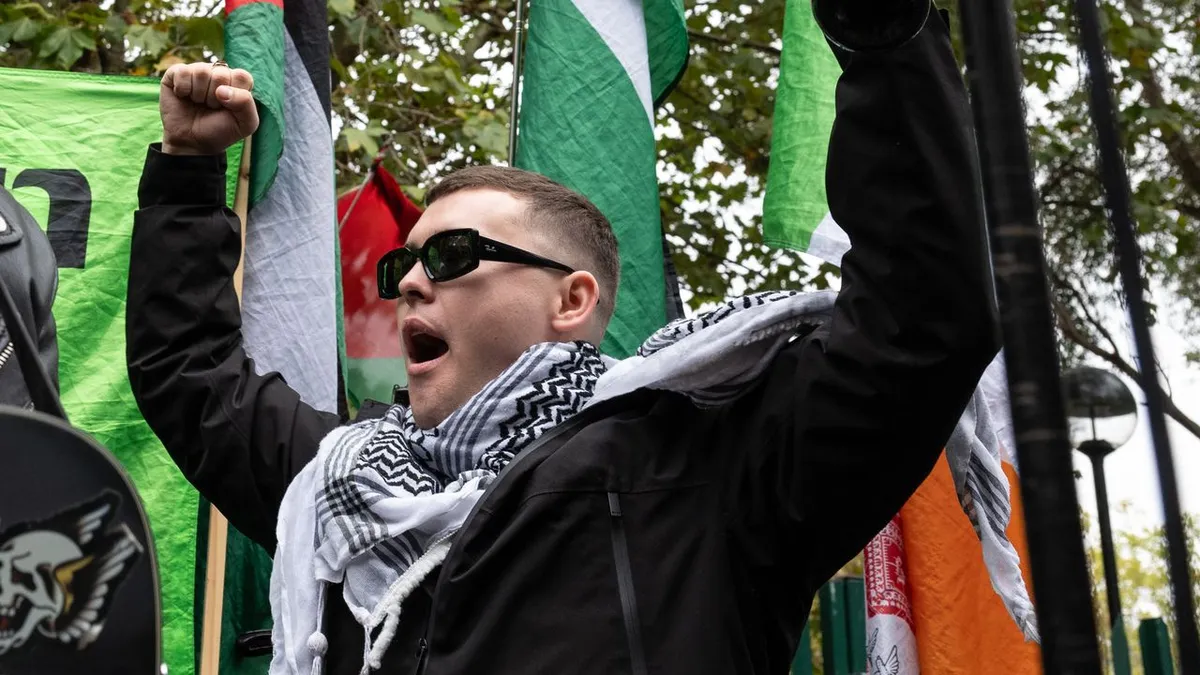
A London judge has officially dropped the terrorism charge against Liam Óg Ó hAnnaidh, the well-known Kneecap rapper who performs under the name Mo Chara. This significant ruling highlights the complexities surrounding legal actions related to free expression, especially in the context of political activism.
The charge against Mo Chara originated from an incident in November 2024, during which he allegedly displayed the Hezbollah flag while performing at a concert. However, the musician's defense team successfully argued that the case fell outside the statute of limitations. Chief Magistrate Paul Goldspring concurred with this assessment, stating, “I find that these proceedings were not instituted in the correct form, lacking the necessary DPP (Director of Public Prosecutions) and AG (Attorney General) consent within the six-month statutory time limit.”
Goldspring further explained that the court lacked the jurisdiction to proceed with the charge, effectively putting an end to the legal battle for Mo Chara.
Following the ruling, Mo Chara addressed his supporters outside the courthouse, emphasizing that the case was never about him personally. “This entire process was never about me,” he stated. “It was never about any threat to the public; it was never about terrorism—a word used by your government to discredit people you oppress.”
Mo Chara, along with his bandmates in Kneecap, has been a vocal advocate for Palestinian rights and has been critical of Israel's policies. The Irish rappers have also publicly denounced both Hezbollah and Hamas, groups that are labeled as terrorist organizations by the UK government.
Mo Chara continued, “It was always about Gaza, about what happens if you dare to speak up. Your attempts to silence us have failed because we’re right and you’re wrong.” His remarks reflect a broader sentiment among artists and activists who seek to use their platforms to address political issues, challenging narratives that they believe are oppressive.
This ruling not only impacts Mo Chara's future as a musician but also resonates deeply within the ongoing dialogue about freedom of speech and the role of artists in political discourse. As the landscape of activism continues to evolve, the outcome of this case serves as a critical reminder of the importance of legal frameworks in protecting artistic expression.